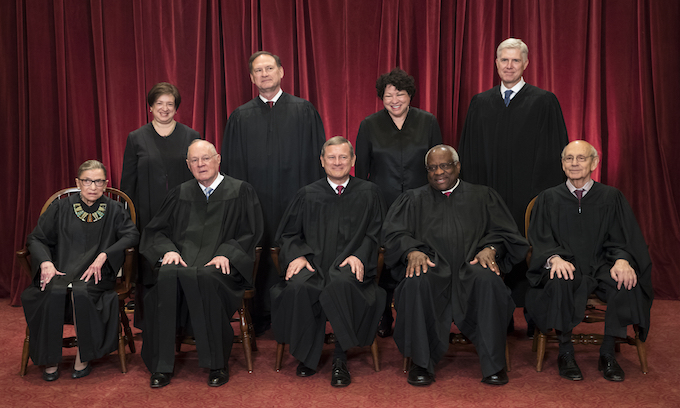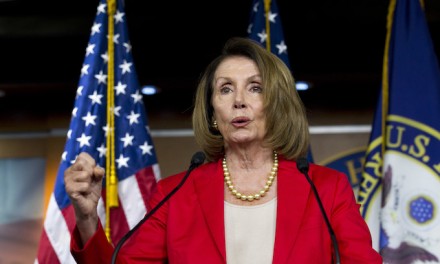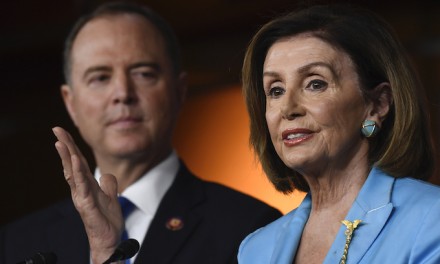Americans trying to make sense of the drama surrounding Brett Kavanaugh might think back to the last time a Republican president’s nominee to the Supreme Court hit a fatal snag.
Oddly foreshadowing the current crisis, George W. Bush, like President Trump, was blindsided by a hailstorm of criticism toward his first choice for his second nominee to the court. Harriet Miers had his full confidence, but she was rapidly scorched and had to be dropped. Then Bush selected Samuel Alito, who now sits comfortably on that bench.
While Kavanaugh’s fate is still up in the air, and the circumstances surrounding the opposition to his nomination are far different from those that plagued Miers, the lesson is the same. Presidents have the luxury of learning from unsuccessful nominations to the court. In this area, unlike so many others, they can absorb blows from their enemies and come out stronger.
One reason is that the president can choose from the best. The fact is there are many more well-qualified candidates for the job of Supreme Court justice than there are openings. And while many other considerations beyond resume and work history now go into selecting confirmable nominees, presidents enjoy an embarrassment of riches, even applying that elevated scrutiny.
That’s not necessarily a reason to drop a challenged nominee like a hot potato. While losing one Supreme Court fight is relatively easy, losing two would be a disaster. The way in which a nominee goes down matters much more than whether they go down. It influences how strong or weak the president looks trying to bounce back. Presidents don’t want key constituents feeling as fried as a failed nominee.
And in Kavanaugh’s case, evangelical and pro-life leaders are rumbling that their people will stay home in November if Trump fumbles.
On the other hand, if Kavanaugh is shot down, evidence suggests many Republicans will be more motivated to rally for a replacement and to ensure they pull the level to keep Democrats from taking control of Congress.
The decisive factor is who would step into the breach if Kavanaugh doesn’t work out. And on this score, much of the talk in the Beltway has centered around Judge Amy Coney Barrett of the U.S. Court of Appeals for the 7th Circuit. Barrett suffered a relatively bruising confirmation hearing of her own, but most of the criticism, focused on her religious convictions, came from Sen. Dianne Feinstein — whose judgment in handling the sexual assault allegations against a then-teenage Kavanaugh have come under scrutiny from both sides.
In several key respects Barrett would be immune from the kind of attacks Kavanaugh has faced, along the now familiar line of his being a privileged white male beneficiary of private school and elite old boys networks.
She would also enjoy a rally effect of her own as Republicans closed ranks to nominate a woman with a long career in law but without a lengthy paper trail.
Although Democrats would hand Trump a major defeat if they managed to sink two consecutive Supreme Court nominees, they are not necessarily strengthening their position against him by sinking the first. Presidents have the upper hand when it comes to staffing the court. With Kavanaugh or without him, Trump is likely to reshape the Supreme Court.
___
(c)2018 The Orange County Register (Santa Ana, Calif.)
Visit The Orange County Register (Santa Ana, Calif.) at www.ocregister.com
Distributed by Tribune Content Agency, LLC.
—-
This content is published through a licensing agreement with Acquire Media using its NewsEdge technology.




















Recent Comments